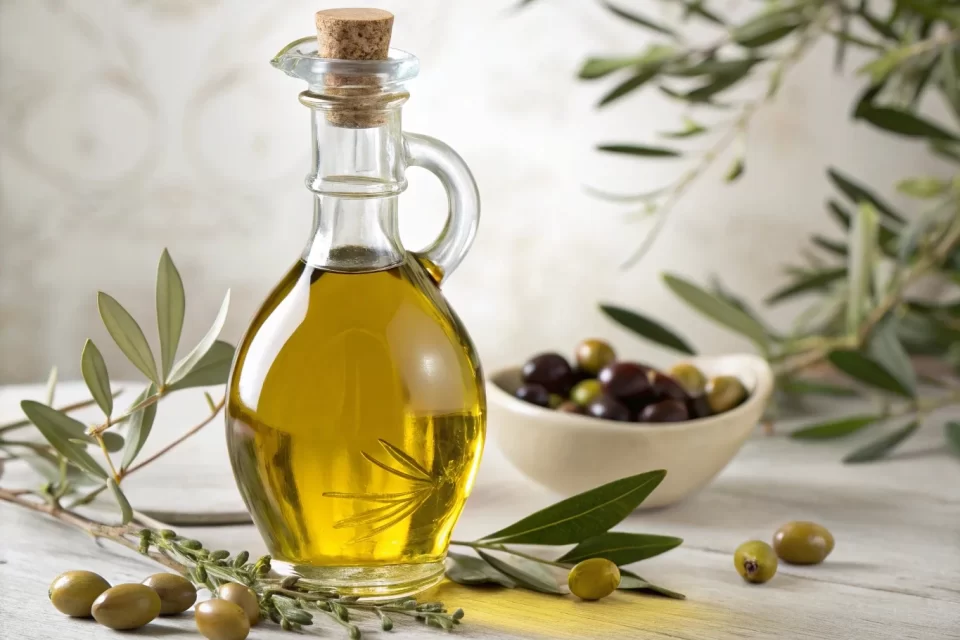Introduction
Olive oil, derived from the fruit of the olive tree (Olea europaea), is a cornerstone of Mediterranean cuisine and a globally celebrated ingredient. Renowned for its rich flavor and health-promoting properties, olive oil is a versatile fat that enhances dishes while offering significant nutritional benefits. This article explores olive oil’s historical role in food, its nutritional profile, evidence-based health benefits, practical tips for use, and complementary food pairings, supported by scientific research.
History of Olive Oil in Culinary Traditions
Olive oil’s culinary use dates back over 6,000 years, originating in the Mediterranean region, particularly in ancient Mesopotamia and Crete. Archaeological evidence from Minoan Crete (circa 2500 BCE) shows olive oil was used in cooking, religious rituals, and as a base for perfumes. Ancient Greeks and Romans prized olive oil, using it in breads, sauces, and as a preservative for meats and vegetables. In the Middle Ages, olive oil remained a staple in Mediterranean diets, drizzled over flatbreads or mixed with herbs for dipping. Its trade along the Silk Road introduced it to Middle Eastern and North African cuisines, where it became essential in dishes like hummus and tagines. Today, olive oil is a global staple, featured in Italian pastas, Spanish gazpachos, and modern salads, reflecting its universal appeal and adaptability.
Nutritional Profile
Olive oil, particularly extra virgin olive oil (EVOO), is rich in healthy fats and bioactive compounds. Per 100 grams (approximately 7 tablespoons):
- Calories: 884 kcal
- Protein: 0g
- Fat: 100g (14g saturated, 73g monounsaturated, 10g polyunsaturated)
- Carbohydrates: 0g (0g fiber, 0g sugars)
- Vitamins and Minerals:
- Vitamin E: 14.4mg (72% Daily Value)
- Vitamin K: 60.2µg (50% DV)
- Trace amounts of iron and potassium
- Bioactive Compounds: Polyphenols (e.g., oleuropein, hydroxytyrosol), squalene, and oleic acid
Note: Nutritional values are based on USDA data for extra virgin olive oil. Values may vary slightly depending on olive variety, processing, and grade (e.g., virgin vs. refined). EVOO retains the most nutrients due to minimal processing.
Health Benefits
Olive oil’s health benefits, particularly from EVOO, are driven by its monounsaturated fats and antioxidants. Below are key benefits supported by scientific studies:
- Cardiovascular Health: Olive oil’s high monounsaturated fat content reduces LDL cholesterol and increases HDL cholesterol. A meta-analysis in Circulation (2014) found that olive oil consumption lowered cardiovascular disease risk by 30% in Mediterranean populations.
- Anti-Inflammatory Properties: Polyphenols like oleocanthal in EVOO mimic ibuprofen’s anti-inflammatory effects. A study in Nature (2005) demonstrated that oleocanthal inhibits inflammatory enzymes, potentially reducing chronic inflammation.
- Antioxidant Support: Olive oil’s polyphenols and vitamin E combat oxidative stress. Research in The Journal of Nutrition (2015) showed that EVOO increased antioxidant enzyme activity, reducing oxidative damage in cells.
- Blood Sugar Regulation: Olive oil may improve insulin sensitivity. A study in Diabetes Care (2016) found that a Mediterranean diet rich in EVOO reduced type 2 diabetes risk by 40% compared to a low-fat diet.
- Cognitive Health: Olive oil’s antioxidants may protect brain function. A study in Annals of Clinical and Translational Neurology (2017) linked EVOO consumption to improved cognitive performance in older adults.
Note: Benefits are most pronounced with EVOO due to its higher polyphenol content. Limit consumption to 1–2 tablespoons daily to balance calorie intake. Consult a healthcare provider for personalized advice, especially for those with dietary fat restrictions.
Tips for Using Olive Oil
- Choose Extra Virgin: Select EVOO for maximum flavor and health benefits. Look for cold-pressed, dark-bottled options to ensure quality and protect against oxidation.
- Storage: Store in a cool, dark place in an airtight container to prevent rancidity. Use within 6 months of opening for optimal freshness.
- Cooking: Use EVOO for low- to medium-heat cooking (up to 375°F/190°C) or raw applications (dressings, drizzling). Use regular olive oil for high-heat cooking to avoid burning.
- Portion Control: Stick to 1–2 tablespoons daily to manage calorie intake while reaping benefits.
- Flavor Enhancement: Infuse EVOO with herbs like rosemary or garlic for added flavor, but consume infused oils within a week to avoid spoilage.
- Quality Check: Avoid oils with a rancid smell or taste. Choose brands with harvest dates or certifications (e.g., PDO, USDA Organic) for authenticity.
Food Pairings for Olive Oil
Olive oil’s nutty, fruity flavor enhances a variety of dishes, boosting both taste and nutrition. Below are five healthy combinations:
- Olive Oil + Whole Grain Bread + Herbs: Drizzle EVOO over toasted whole grain bread with rosemary or thyme for a simple, nutrient-rich appetizer high in fiber and antioxidants.
- Olive Oil + Leafy Greens + Lemon: Toss EVOO with spinach or arugula and a squeeze of lemon for a vitamin-rich salad with heart-healthy fats and vitamin C.
- Olive Oil + Roasted Vegetables + Garlic: Roast carrots or zucchini with EVOO and minced garlic for a flavorful side dish packed with beta-carotene and polyphenols.
- Olive Oil + Grilled Fish + Parsley: Brush salmon or cod with EVOO and parsley before grilling for a protein-rich meal high in omega-3s and vitamin K.
- Olive Oil + Tomatoes + Basil: Combine EVOO with fresh tomatoes and basil for a Mediterranean salsa or bruschetta topping, rich in lycopene and antioxidants.
Scientific and Academic Support
Olive oil’s benefits are backed by peer-reviewed research:
- Schwingshackl, L., & Hoffmann, G. (2014). Circulation: Olive oil’s role in reducing cardiovascular disease risk.
- Beauchamp, G. K., et al. (2005). Nature: Oleocanthal’s anti-inflammatory properties in EVOO.
- Covas, M. I., et al. (2015). The Journal of Nutrition: Antioxidant effects of EVOO polyphenols.
- Guasch-Ferré, M., et al. (2016). Diabetes Care: EVOO’s impact on type 2 diabetes prevention.
- Martínez-González, M. A., et al. (2017). Annals of Clinical and Translational Neurology: Olive oil and cognitive health.
These studies confirm olive oil’s potential to support heart health, reduce inflammation, and protect against chronic diseases, though optimal benefits require high-quality EVOO and moderate consumption.

